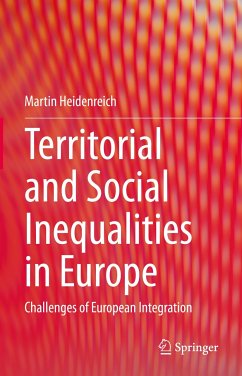
The Retreat of Liberal Democracy (eBook, PDF)
Authoritarian Capitalism and the Accumulative State in Hungary
Versandkostenfrei!
Sofort per Download lieferbar
104,95 €
inkl. MwSt.
Weitere Ausgaben:

PAYBACK Punkte
52 °P sammeln!
This book is the product of three years of empirical research, four years in politics, and a lifetime in a country experiencing three different regimes. Transcending disciplinary boundaries, it provides a fresh answer to a simple yet profound question: why has liberal democracy retreated?Scheiring argues that Hungary's new hybrid authoritarian regime emerged as a political response to the tensions of globalisation. He demonstrates how Viktor Orbán's Fidesz exploited the rising nationalism among the working-class casualties of deindustrialisation and the national bourgeoisie to consolidate ill...
This book is the product of three years of empirical research, four years in politics, and a lifetime in a country experiencing three different regimes. Transcending disciplinary boundaries, it provides a fresh answer to a simple yet profound question: why has liberal democracy retreated?
Scheiring argues that Hungary's new hybrid authoritarian regime emerged as a political response to the tensions of globalisation. He demonstrates how Viktor Orbán's Fidesz exploited the rising nationalism among the working-class casualties of deindustrialisation and the national bourgeoisie to consolidate illiberal hegemony.
As the world faces a new wave of autocratisation, Hungary's lessons become relevant across the globe, and this book represents a significant contribution to understanding challenges to democracy. This work will be useful to students and researchers across political sociology, political science, economics and social anthropology, as well democracy advocates.
Scheiring argues that Hungary's new hybrid authoritarian regime emerged as a political response to the tensions of globalisation. He demonstrates how Viktor Orbán's Fidesz exploited the rising nationalism among the working-class casualties of deindustrialisation and the national bourgeoisie to consolidate illiberal hegemony.
As the world faces a new wave of autocratisation, Hungary's lessons become relevant across the globe, and this book represents a significant contribution to understanding challenges to democracy. This work will be useful to students and researchers across political sociology, political science, economics and social anthropology, as well democracy advocates.
Dieser Download kann aus rechtlichen Gründen nur mit Rechnungsadresse in A, B, BG, CY, CZ, D, DK, EW, E, FIN, F, GR, HR, H, IRL, I, LT, L, LR, M, NL, PL, P, R, S, SLO, SK ausgeliefert werden.












